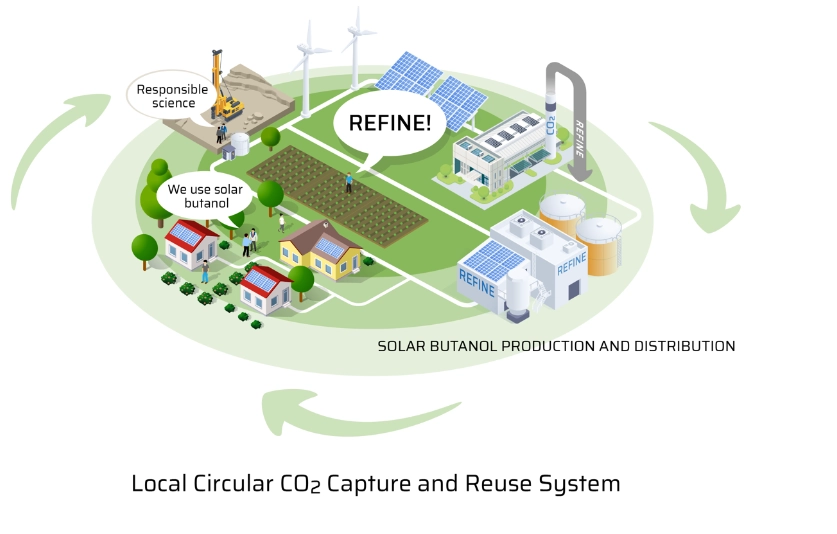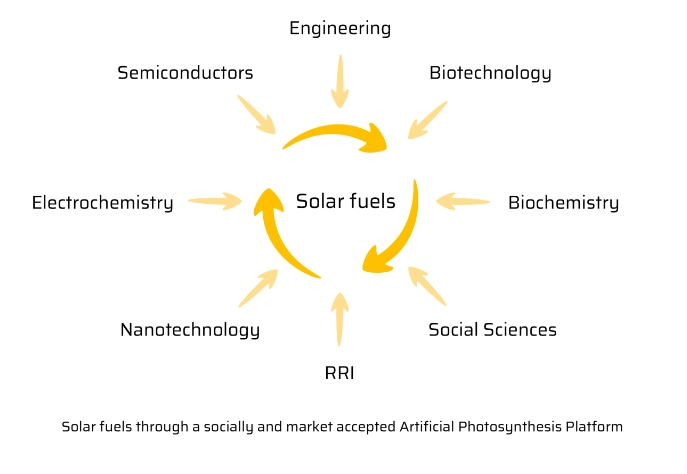From solar energy to fuel
THE TECHNOLOGY
A radical artificial photosynthesis system for solar fuel production
Excessive CO2 emissions and inefficient recycling pose contemporary challenges. Artificial photosynthesis holds promise but necessitates the integration of fields such as materials science, biotechnology, engineering and social sciences to bring it to the market. The EU-funded REFINE project is dedicated to developing a revolutionary artificial photosynthesis system capable of directly producing high-energy alcohols such as isopropanol and butanol, using captured CO2 and hydrogen generated through water photoelectrolysis. This system operates solely on solar energy. The multi-level project organisation represents an innovative and holistic approach to addressing significant modern societal challenges, including widespread CO2 emissions and the lack of efficient CO2 recycling.

system for solar fuel production
REFINE develops and demonstrates a system of artificial photosynthesis by combining both dark and light-dependent reactions for the direct production of high energy density and essential chemicals, such as alcohols. To achieve this, a direct hydrogen storage into hydrocarbons through CO2 capture and transformation in an advanced bio-refining system is proposed. In this, hydrogen produced by water photoelectrolysis is combined with captured CO2 and directly fed to biocultures that selectively produce isopropanol and butanol as high energy solar fuels, and the only energy input to drive this radical technological system is sunlight. To realise and bring to the market such a system of artificial photosynthesis it is necessary to converge the fields of materials science, biotechnology, engineering and social sciences.

